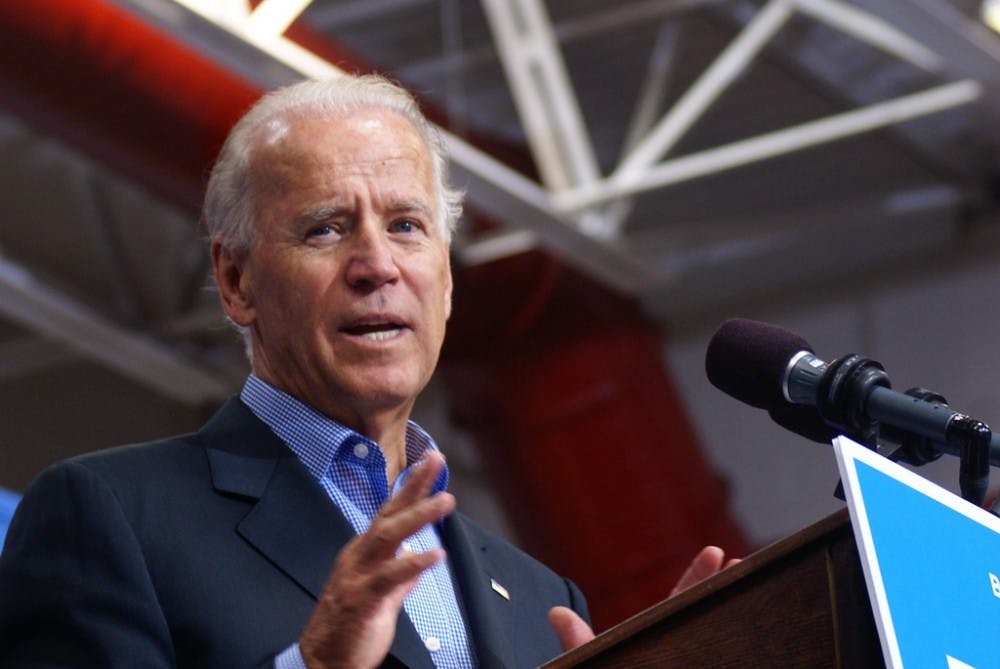Last Thursday, Elizabeth Warren dropped out of the presidential race, leaving two candidates in the Democratic field: Bernie Sanders and Joe Biden. Since many had seen her as the last “diverse” candidate on the ballot, this was an expected, but still disappointing, moment.
In a year when it seemed more possible than ever that a woman would become president, the ballot is once again narrowed down to two options we’ve seen again and again: old, white men.
There is a lot to be said about identity politics, and not everything is positive. It is, however, undeniable that the dependence on demographic groups has left our society eager to generalize, polarize, and fracture. One should not vote for a candidate based solely on their gender, race, or class; doing so is dangerous and foolish.
Yet the fact that qualified, charismatic, and powerful women and people of color continue to face the barriers to achieving political success shows how the current political system entrenches a structure that preserves power for those people who have always held it.
While we cannot say any candidate was definitively superior to another, we must also recognize that women such as Elizabeth Warren and Amy Klobuchar are just as, if not more, qualified than Sanders or Biden, and possess much more political experience than Pete Buttigieg or Mike Bloomberg.
There are many factors credited for Warren and Klobuchar’s losses: electability, aloofness, lack of charisma. But when the same language and excuses are used for candidate after candidate, the reality becomes clear: whatever the supposed reasoning may be, American politics in 2020 is still not okay with a woman in power.
In our current political and societal moment, this sort of exclusion and prejudice is unacceptable. Our country is only growing more diverse; the new policies this multidimensional community seeks requires fresh and representative leadership. In promoting candidates of the same demographic to the forefront, the political system as it stands is only asking for greater apathy among its voters and stagnation in its administration.
The fact that only established white male candidates receive the titles of legitimacy and “electability” is discouraging for female students and voters across the country, including at Princeton. With the series of losses minority and female candidates have faced in the past few election years, it is easy to lose hope. These feelings of anger and frustration can be exhausting, and grassroots campaigning can only do so much.

But the momentum built so far cannot fade. In fact, it is time for the entirety of the electorate to realize how deeply entrenched the structures are to maintain those in power. Our generation and our new American electorate, aware of de facto disenfranchisement and glass ceilings, must continue to advocate for new voices to challenge those who we see as powerful, intelligent, and worthy to be our president.
We can start with Princeton. Despite polls of the student body showing that Princeton students preferred female candidates more than the current primary results, our political environment continues to be sheltered and even apathetic. We must continue to register all voters on campus and demand active participation in our political environment. Inspiring our own student body will also allow us to engage in larger-scale activism, supporting campaigns and voter turnout across the country.
I cannot say that the Democratic primaries haven’t already disappointed me. The last few months have left me angry and nearly hopeless. But just because 2020 wasn’t our year does not mean our year won’t come. Year after year, we must identify and confront the inherent prejudice and inflexibility of our political process. As each groundbreaking candidate pushes the possibilities further and further, it’s in our hands to ensure their equal access to success.
We claim we want a president that will lead our country into the future. It’s on us to make that happen.

Kate Lee is a first-year from Austin, Texas. She can be reached at k.lee@princeton.edu.








